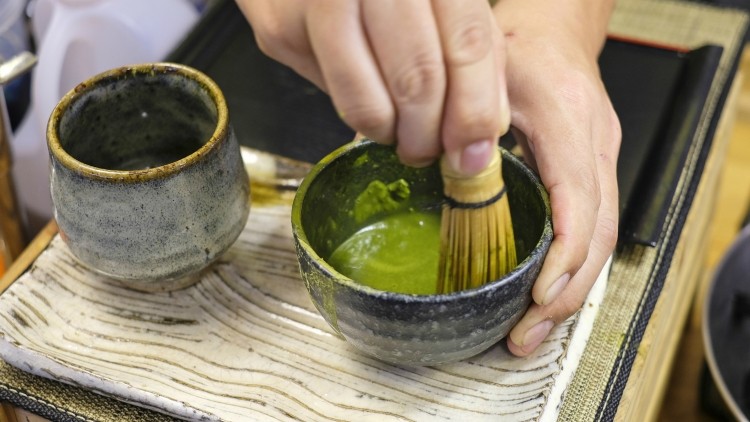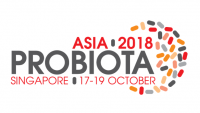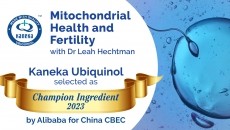Green tea's anti-bladder cancer potential should be further explored, amid 'contradictory' findings

The region's leading probiotic and microbiome event — Probiota Asia — will get underway in Singapore this month with a stellar line-up of speakers, including the likes of Blackmores, Danone, Herbalife and Life-Space, set to take to the stage.
Green tea and its polyphenols (GTPs) have been reported to inhibit carcinogenesis and malignant behaviour typical of certain diseases, with numerous in vitro and in vivo studies showing that GTPs could suppress the incidence and development of bladder cancer.
However, there are many conflicting opinions on green tea's anti-cancer properties and its ability to aid in cancer prevention. Furthermore, the detailed molecular mechanisms behind these properties are still unclear, since they are regulated by various cancer-related factors.
To advance treatment strategies involving green tea intake for bladder cancer patients, a more detailed comprehension of GTPs' pathological roles and regulatory mechanisms on a molecular level is needed.
Going green — good or bad for the bladder?
Researchers at the university therefore conducted a review to discuss the anti-cancer impact of GTPs, using data presented in in vitro studies in bladder cancer cell lines, as well as in vivo studies using animal models.
The review also included possible new treatment strategies based on green tea consumption for bladder cancer patients, and used accumulated data and main findings to discuss green tea's potential usefulness as an agent against bladder cancer.
The researchers reported that views on green tea's anti-bladder cancer effects tended to be contradictory: while one study reported that those with high green tea consumption had lower bladder cancer risk than those who had never consumed green tea, another found bladder cancer risk to be markedly higher for those who drank five to nine cups of green tea every day, compared to those who did not drink green tea at all.
However, the same study also reported that bladder cancer risk for those who drank 10 or more cups of green tea a day was similar to that for individuals who did not drink green tea.
The researchers wrote: "With regard to epidemiological studies, we should also pay attention to the fact that various units are used to measure green tea consumption, such as frequency/day, cups/day, and ml/day.
"In addition, the volume per cup differs among countries and regions. For example, the volume of representative cups used for consuming green tea in Japan (120 to 140 ml) is less than that in Western countries. This information is important when considering the clinical usefulness of green tea."
Ethnicity is another possible factor influencing the impact of green tea consumption on bladder cancer. Four of the seven studies reviewed had been conducted in Asian countries, with the rest in the US — one among subjects of Japanese ancestry and another among Japanese living in the US.
Case-control and cohort studies on GTP's anti-bladder cancer effects have yet to be performed in Europe, Africa, and Central and South America, though a cohort study involving participants from 10 European countries found that tea and herbal tea consumption was not linked to the risk of urothelial cancer.
The power of EGCG
Epigallocatechin 3-gallate (EGCG), a GTP, has been found in in vitro studies to suppress cancer cell proliferation and growth in numerous bladder cancer cell lines.
It has also been reported to induce apoptosis in various types of bladder cancer cell lines, regardless of the malignant potential and species. A study found that EGCG played a crucial role in not just the induction of apoptosis, but also the inhibition of growth in a bladder cancer cell line.
However, another study showed that EGCG affected only the apoptosis of bladder cancer cells, but not cell proliferation or migration.
When it came to animal studies, results from different studies were once again conflicting. While GTP's anti-bladder cancer effects were confirmed in various animal models, others found that green tea intake did not affect the development of bladder cancer.
Treatment with tea
In terms of green tea-based treatment and prevention strategies, the researchers stated that "GTPs can be used in combination with epirubicin (a chemotherapy drug) for enhanced epirubicin-based bladder cancer therapy".
They added that a combination of conventional chemotherapy and GTPs could be useful in treating bladder cancer, and as such, "more information on the efficacy and safety of combination therapy involving cytotoxic anti-cancer methods and green tea consumption or GTP intake in bladder cancer is warranted".
They concluded: "In vitro studies using cancer cell lines indicated that GTPs suppress malignant behaviour via inhibition of cancer cell proliferation, migration, and invasion and inhibition of apoptosis, and some in vivo studies using animal models also showed similar results.
"However, some epidemiological studies showed no significant relationship between green tea consumption and the risk of bladder cancer. These discrepancies can be attributed to differences in the race, country, and measurement unit for green tea consumption and / or the influence of other factors, such as smoking, amount of green tea consumption per day, and the intake of other beverages.
"Therefore, more detailed and wider analyses of larger study populations from various countries, including USA, Europe, and Africa, are necessary to confirm the anti-cancer effects and usefulness of green tea as an anti-cancer agent.
"The anti-cancer effects of GTPs alone are considered to be limited, whereas a combination of GTPs and other strategies, such as chemotherapy, radiotherapy, immune therapy, and molecular targeted therapy is expected to have some clinical benefit in patients with cancer, including bladder cancer."
Source: Medicines
https://doi.org/10.3390/medicines5030087
"Anticancer Effects of Green Tea and the Underlying Molecular Mechanisms in Bladder Cancer"
Authors: Yasuyoshi Miyata, et al.



















